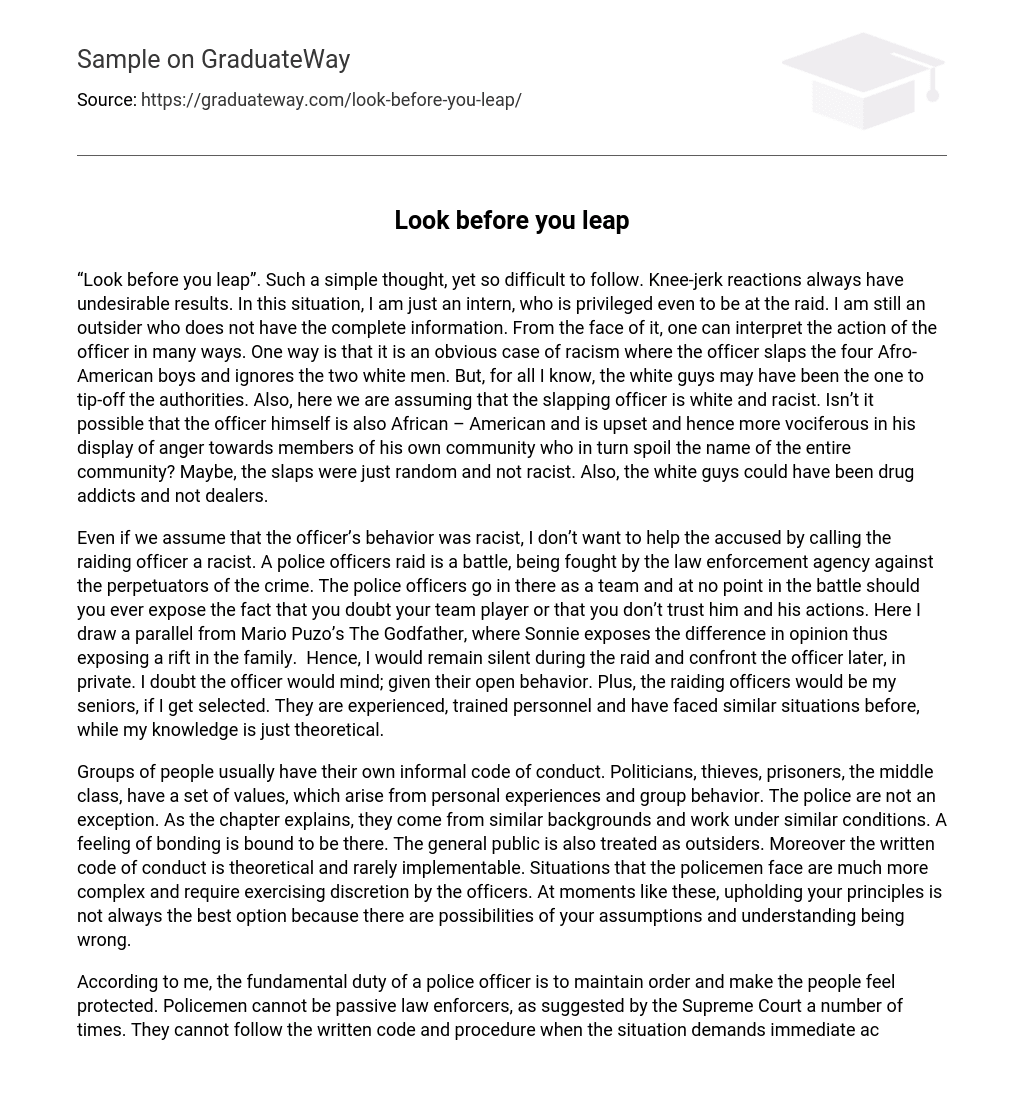“Look before you leap”. Such a simple thought, yet so difficult to follow. Knee-jerk reactions always have undesirable results. In this situation, I am just an intern, who is privileged even to be at the raid. I am still an outsider who does not have the complete information. From the face of it, one can interpret the action of the officer in many ways. One way is that it is an obvious case of racism where the officer slaps the four Afro-American boys and ignores the two white men. But, for all I know, the white guys may have been the one to tip-off the authorities. Also, here we are assuming that the slapping officer is white and racist. Isn’t it possible that the officer himself is also African – American and is upset and hence more vociferous in his display of anger towards members of his own community who in turn spoil the name of the entire community? Maybe, the slaps were just random and not racist. Also, the white guys could have been drug addicts and not dealers.
Even if we assume that the officer’s behavior was racist, I don’t want to help the accused by calling the raiding officer a racist. A police officers raid is a battle, being fought by the law enforcement agency against the perpetuators of the crime. The police officers go in there as a team and at no point in the battle should you ever expose the fact that you doubt your team player or that you don’t trust him and his actions. Here I draw a parallel from Mario Puzo’s The Godfather, where Sonnie exposes the difference in opinion thus exposing a rift in the family. Hence, I would remain silent during the raid and confront the officer later, in private. I doubt the officer would mind; given their open behavior. Plus, the raiding officers would be my seniors, if I get selected. They are experienced, trained personnel and have faced similar situations before, while my knowledge is just theoretical.
Groups of people usually have their own informal code of conduct. Politicians, thieves, prisoners, the middle class, have a set of values, which arise from personal experiences and group behavior. The police are not an exception. As the chapter explains, they come from similar backgrounds and work under similar conditions. A feeling of bonding is bound to be there. The general public is also treated as outsiders. Moreover the written code of conduct is theoretical and rarely implementable. Situations that the policemen face are much more complex and require exercising discretion by the officers. At moments like these, upholding your principles is not always the best option because there are possibilities of your assumptions and understanding being wrong.
According to me, the fundamental duty of a police officer is to maintain order and make the people feel protected. Policemen cannot be passive law enforcers, as suggested by the Supreme Court a number of times. They cannot follow the written code and procedure when the situation demands immediate action, especially when public safety is compromised. Policemen are given authority for a reason, and I respect their decisions, even if they appear ‘wrong’ at the face of it.





